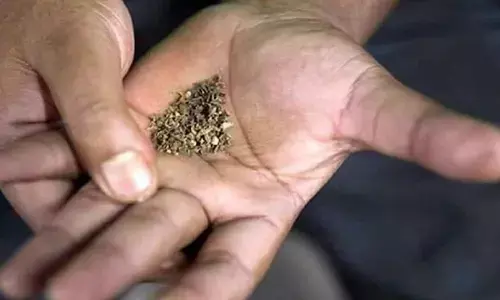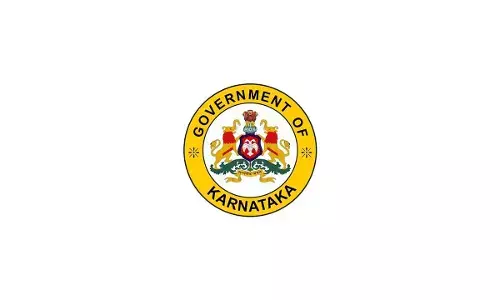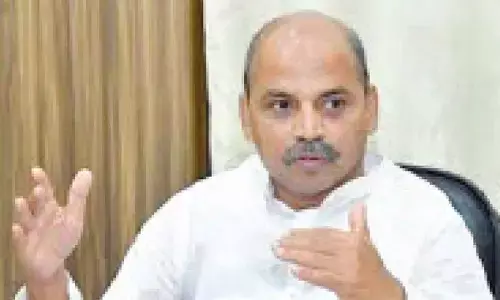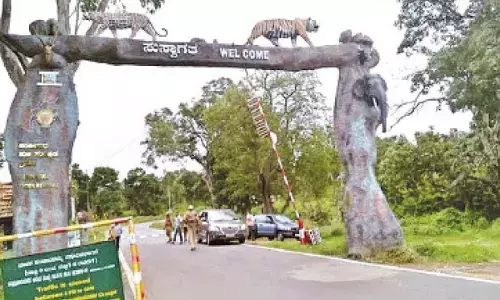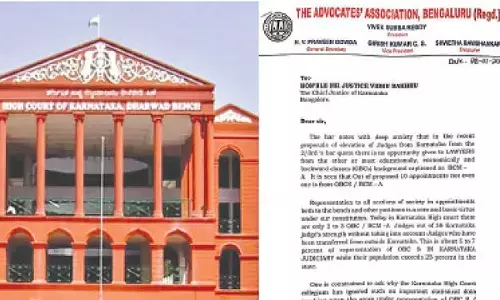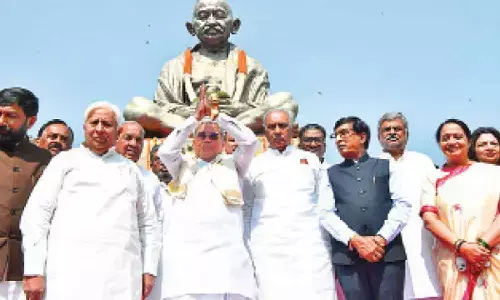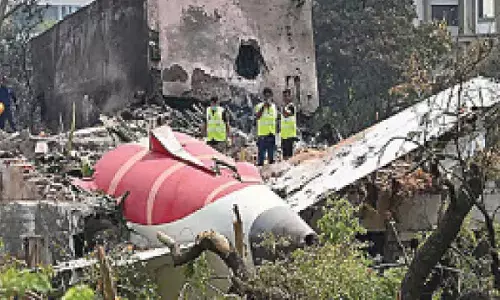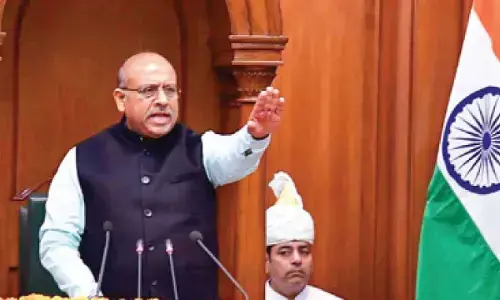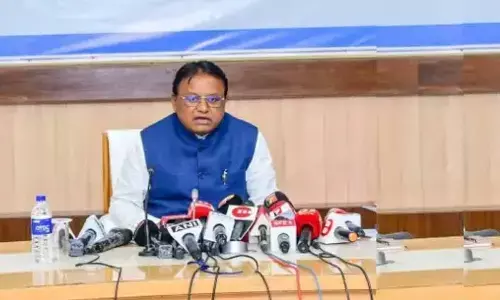Educating ZBN farmers on government schemes
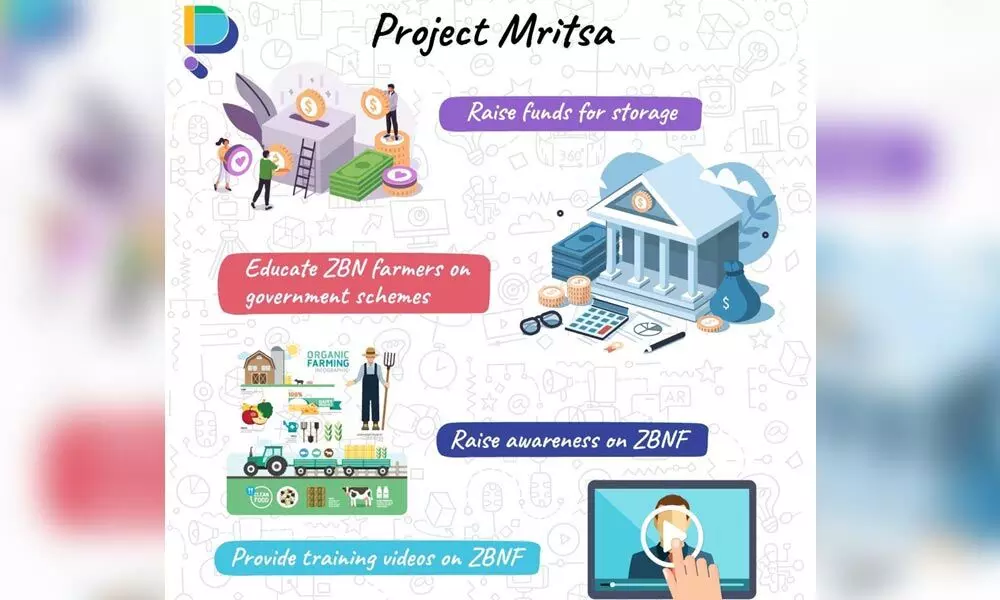
Educating ZBN farmers on government schemes
Meet Nandini Raju (16), Srilakshmi Reddy (16), Sharada Gopalakrishnan (14) and Amrutha Polturi (16), from Hyderabad started a project called 'Mritsa', to help farmers, shift towards Zero Budget Natural (ZBN) Farming
Sharada GopalakrishnanMeet Nandini Raju (16), Srilakshmi Reddy (16), Sharada Gopalakrishnan (14) and Amrutha Polturi (16), from Hyderabad started a project called 'Mritsa', to help farmers, shift towards Zero Budget Natural (ZBN) Farming.
Excerpts from an interview with four girls
What is Project Mritsa? What is its aim?
Project Mritsa started in the month of June. It is a youth initiative to help farmers in Guntur, Andhra Pradesh shift towards Zero Budget Natural farming, which is a chemical-free, safe and more sustainable method of farming. In Mritsa, we aim to connect farmers to government schemes by creating videos that teach them how to apply for the schemes. In addition, we also create training modules to teach them natural methods of farming and use the Instagram handle to create awareness for the farmers. Moreover, we have a fundraiser to raise 4.5 lakhs to provide cold storage facilities for Nilagiri Foundation. With the money, we can save 200kgs of food from being wasted and impact 300 farmers in the process!
We also create awareness for the general public (schoolmates, parents, their friends) on buying organic and supporting local organic farmers.
Where did you all get the idea for project Mritsa?
We had heard about high suicide rates on the news and seen the hardships that farmers go through while visiting the hometowns, so we wanted to help them out in any way possible. Hence, we began delving deeper into the problem to figure out a gap where we could start the project. Once we had a conversation with NGOs and farmers we were sure that this is an area that we would all like to work on. The programme helped us channel our energies towards addressing this issue.
How will this project benefit farmers and students?
Our project has the capacity to strongly impact farmers by teaching them all about natural methods of farming and why they should stop using chemicals, we hope that farmers will convert to zero-budget natural farming. By converting, they can reduce their debt levels, have less risk of diseases, and also help sustain the environment.
How are you creating awareness about Zero Budget Natural Farming and different government schemes among farmers?
We are creating awareness among the general public primarily through social media about the plight of farmers and why Zero Budget Natural Farming is the best method of farming to combat the problems they are facing. For the farmers, we are using our NGO as the primary source of contact as they are directly connected to all the farmers and are helping us set up meetings with them, play our project videos for them, and obtain feedback accordingly.
In this context, our on-ground support Abhiram from 1M1B has also helped us get in contact with the farmers virtually. In the future, we plan to directly meet them to watch them on the field and understand their problem in more detail, which will enhance the communication with them.
How many funds have been raised to date and how is it getting utilised?
We have raised over Rs.1.5 lakhs to date and the funds will be used for setting up a cold storage unit to store and protect the farmers' produce. This has been a major issue for the farmers as their produce gets wasted due to the lack of a refrigeration unit.
What are the targets and future plans of the team?
We hope to raise more funds for the cold storage unit, continue engaging with farmers and help them access government schemes and training modules. We also won't keep consumers aware of the issue and garner more public support.
When asked 'what do you have to say about your students who have initiated a project for farmers', Manav Subodh, Co-Founder of 1M1B Foundation he said, "The girls- Nandini, Srilakshmi, Sharada and Amrutha in Project Mritsa have taken up a very bold topic for creating impact. Farmers are a big part of India and are at the risk of getting left behind with the growing urban-rural divide. Project Mritsa is role modeling how young people from the big cities must come together and support the work governments, large corporations and civil society is doing for the overall well-being of farmers.
What do you want to achieve through such programmes and projects?
We want young students to engage with the hinterlands of India and have an immersive experience by making an attempt to solve problems that matter to the overall social and economic development of the country. Students from big cities get to interview people from rural India, team up with real people working on the ground, partner with NGOs, learn how to deploy technologies like Artificial Intelligence (AI), they learn how to mobilize resources and create the impact that truly matters. Students get an impact lab experience and are trained to become responsible business leaders."
Sharada Gopalakrishnan, Nandini Raju, Srilakshmi Reddy and Amrutha Polturi








